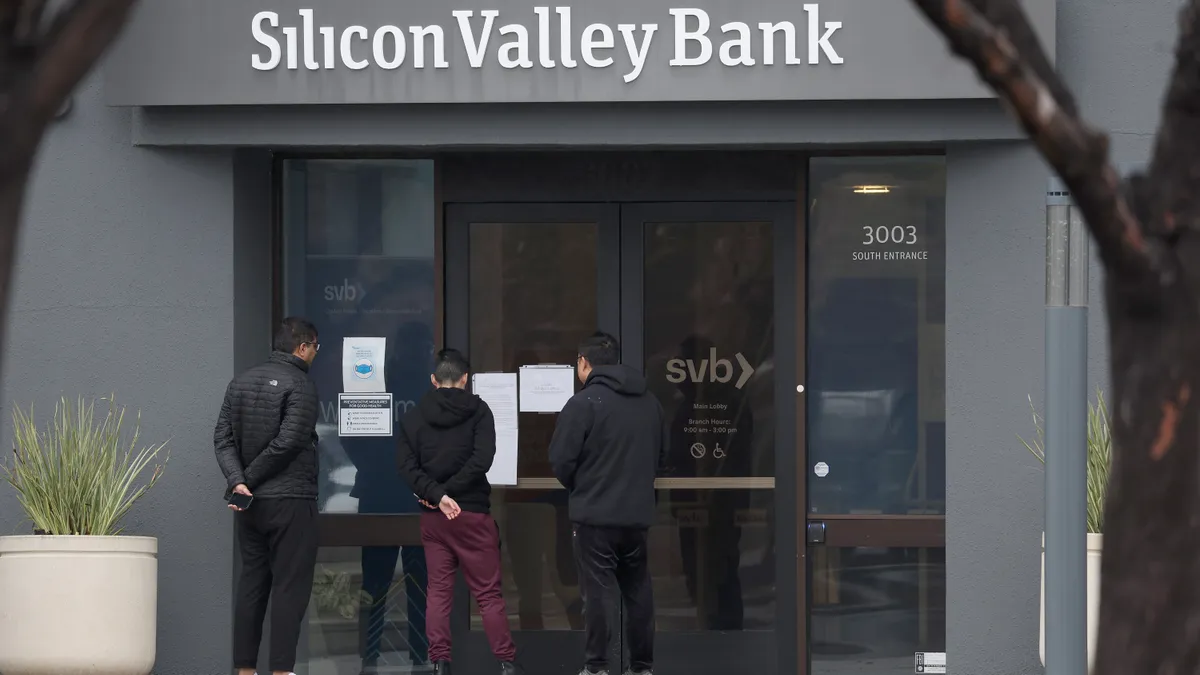The repercussions of Silicon Valley Bank’s Friday collapse reached beyond the financial world and into the tech sector.
Established in 1983, the bank grew up among the region's startups and future tech giants, matching venture capital to entrepreneurial businesses and vice versa.
The demise of SVB disrupts the entire tech startup ecosystem, Lee Sustar, principal analyst at Forrester, told CIO Dive Monday.
The bank not only fueled acquisitions and IPOs but it also contributed to the connective tissue between the startup world and the enterprise technology space.
Smaller vendors were able to find success serving major companies thanks to financial backing from the bank, which then helped procure further investment, according to Sustar.
The Federal Reserve System, the U.S. Department of the Treasury and the Federal Deposit Insurance Corporation stepped in over the weekend to guarantee deposits, alleviating short-term concerns. But downstream impact on the startups that did business with SVB and the enterprises that depend on smaller tech firms for solutions and innovations are not yet clear.
“If the money and investment is not available for those firms, it may impact companies that are already using or plan to use their products,” Sustar said.
Headquartered in Santa Clara, California, SVB had a national and global reach. It services about half of all startups, according to Scott Bickley, vendor practice advisory lead at Info-Tech Research Group.
“What they offered was a support ecosystem for this segment of the economy,” Bickley said. “They gave advice to founders. They secured mortgages. They would help recruit people. It was part of the glue that holds that whole hub together.”
The problem for enterprise IT leaders now is uncertainty around which vendors may or may not be affected by the collapse.
“The pipeline of money has disintegrated into a billion pieces,” said Bickley. “We don't know when the next funding round may come, how soon companies may need it, or how dependent they are on that next round, which may now be significantly delayed.”
For most of the companies caught in gray, there’s relief that they’ll be able to make payroll this week — and questions about what comes next.
SVB was a unique bank, AJ Bruno, co-founder and CEO of QuotaPath and a former SVB client, told CIO Dive.
“They're just different and they're built for a different customer — they understood founders and what access to capital means,” he said. “It’s going to take a long time to replace.”
Correction: In a previous version of this article, Lee Sustar was misidentified. He is principal analyst at Forrester.













